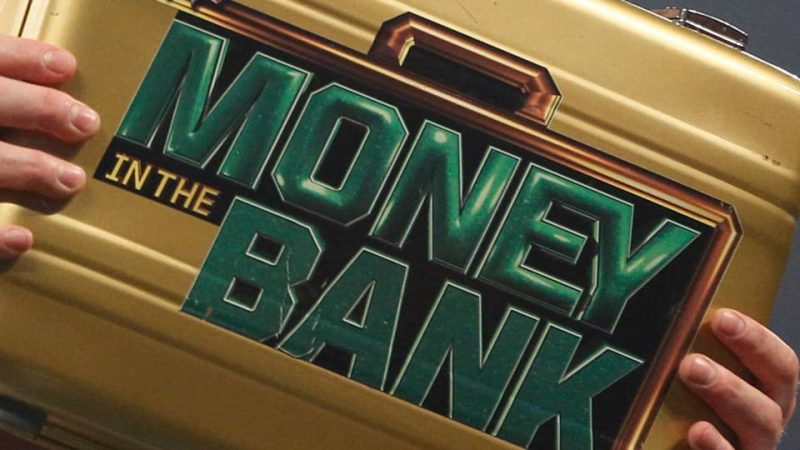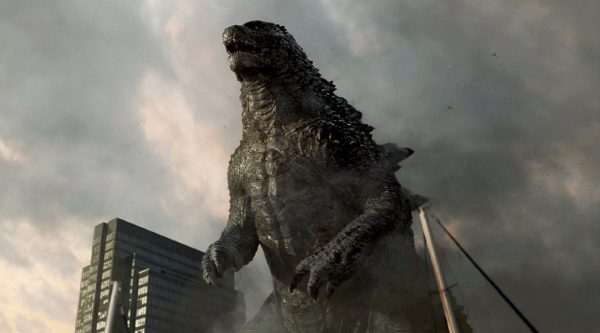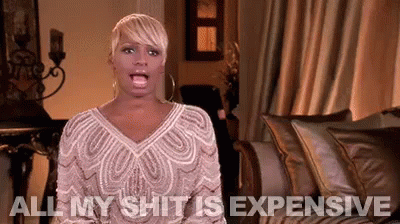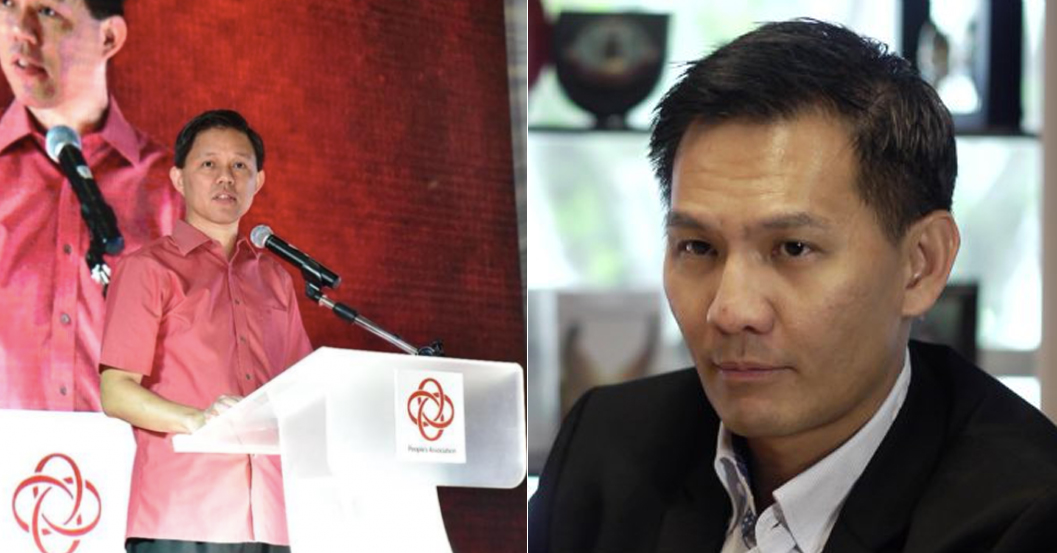Everyone knows Singapore has lots of reserves.
The exact amount is unknown, but back in September 2017, it was reported that it was in the vicinity of S$1 trillion.
Or more.
So much for what?
But why do we hoard reserves?
This question reared its head again in the week after finance minister Heng Swee Keat's Budget Statement on Feb. 19, 2018.
Although the government announced that it had a record budget surplus of S$9.61 billion for FY2017, it also announced a bunch of revenue-raising measures, including a GST hike in the near future.
Three-minister defence
Heng defended this decision, citing increased healthcare expenditures in the future, and the importance of maintaining our reserves.
Following the Budget, Senior Minister of State for Finance and Law Indranee Rajah also said that we should not allow our reserves to be depleted.
This was followed by Minister in the Prime Minister's Office Chan Chun Sing, who felt it was necessary to reiterate the point.
On Feb. 24, at a Chinese New Year dinner attended by residents of Tanjong Pagar and Radin Mas, Chan said:
"How much we spend and how much we save will also signal to the currency markets what they can expect the strength of the Sing dollar to be.
If the world thinks we are running an irresponsible or unsustainable fiscal policy, you can well imagine what they will do to the Sing dollar. There are severe implications on what it means to not have a strong Sing dollar or not have sufficient reserves as our buffer."
[related_story]
How can Singaporeans think about the reserves?
And if Singaporeans are still unsure how to think about the reserves, public intellectual and economist Donald Low has stepped in to fill in the gap.
In a Facebook post on Feb. 25, the reserves is talked about in relation to how it is supposed to function and what role it serves.
Specifically, he elaborated on the stance of maintaining a strong Singapore currency to ward off speculative attacks and how maintaining strong fundamentals is the most important virtue for a country.
In essence, strong fundamentals will ward off speculative attacks as the currency will prevail by holding up.
As the devil is in the details, the post requires some explanation, but it's worth reading to understand how a country's economy works.
So, let us take you through it, step by step.
1. Maintaining a strong currency
"Since some of my friends asked me, here’s my take on the argument for having lots of financial reserves to maintain a strong Singdollar."
How does Singapore maintain a strong dollar in the first place?
Some countries have a fixed exchange rate, where they peg their currency to a stronger and more stable one.
Others have a floating exchange rate, where their currency value fluctuates according to the market.
Singapore has what is known as a "managed float" or the more-fun-to-say "dirty float" system.
This means that Singapore allows its currency to float within an unspecified band.
If the currency value goes too high, our central bank -- the Monetary Authority of Singapore -- will sell off some of our currency to bring it down.
If it's too low, MAS will use some reserves to buy up Singapore dollars, making it more scarce and driving up its value.
But this also means that Singapore must have a large amount of reserves to maintain its currency value.
 Every MAS employee has one of this. Pic from Sporting News.
Every MAS employee has one of this. Pic from Sporting News.
2. Help, we're under attack
Now comes the next part:
"The argument applies especially if the currency comes under speculative attack."
Hold up -- What's a speculative attack?
This refers to the massive and sudden selling of a nation's currency by investors, who usually target countries with a fixed exchange rate.
When large amounts of currency are sold off, the central bank has to buy it up at the fixed exchange rate.
But once the country runs out of reserves, they can no longer maintain the rate, and are forced to let the currency float on the market.
When that happens, the currency's value will likely drop.
Then the speculators can sell what they have, and make a profit. Allow us to demonstrate.
Imagine that the country of Wakanda has a fixed exchange rate of two Wakandan shillings to one US dollar.
 Gif from Tenor.
Gif from Tenor.
Speculators attack by selling off 100 shillings to the Wakandan central bank, and receive US$50 in return. Wakanda runs out of reserves and can't maintain the fixed rate.
Because of the chaos, people lose confidence in Wakandan economy and the value of the shilling drops. US$1 is now worth 10 shillings.
The speculator can now exchange his US$50 for 500 shillings, where before it would only be worth 100 shillings.
3. First scenario: Irrational herding
Alright, now you understand speculative attacks, here's the next part.
"The question then becomes: under what conditions would speculators take on the Singdollar? There are two scenarios here. The first scenario is that of a currency attack due to irrational herding, in which the Singdollar (which is normally seen as stable and safe) is (mistakenly) lumped with less credible currencies and sold as part of a general sell-down of these currencies.
Something like this happened during the Asian Financial Crisis when the Singdollar came under (some) pressure, along with every other currency in emerging markets in Asia."
Okay, that's pretty easy to grasp. If some kind of disaster happens in our neighbourhood, investors around the world might get spooked and start selling off their Sing dollars because they think we'd be affected too.
 This would qualify as a disaster. Pic from Comic Vine.
This would qualify as a disaster. Pic from Comic Vine.
Low cites the Asian Financial Crisis, which affected Southeast Asia in 1997. The Thai baht came under attack and its central bank burned through its reserves trying to defend its currency valuation.
This had a knock-on effect on Singapore's economy.
High reserves wouldn't help much
Low then explains how having high reserves would not necessarily help in this scenario.
"In this scenario, having sufficient reserves obviously helps to ward off speculators. And if our fundamentals are strong, it wouldn’t cost us a lot of reserves to deter speculators from betting against the Singdollar. They’ll quickly learn that the Singdollar isn’t like other (regional) currencies, i.e. they’d soon learn to distinguish the Singdollar from other currencies that are overvalued relative to their economic fundamentals.
But even in this scenario, when our neighbours are forced to depreciate, it’s not wise to keep the Singdollar as strong as it was before the crisis, as we would quickly lose export competitiveness. So during the Asian crisis, the Singdollar was allowed to weaken against the major currencies (but obviously by much less than the rest of the region)."
He's arguing that if such a disaster happens, investors will quickly understand that Singapore isn't as vulnerable as other countries, so we don't need such a huge amount of reserves to keep defending our currency.
Just a little will do to tide things over until they wise up.
Also, having a very strong Singapore dollar when everyone around us is weak will hurt our export competitiveness, because all of the goods we're trying to sell will be more expensive by comparison.
 Gif from Bravo.
Gif from Bravo.
4. Second scenario: Weak fundamentals
But Low goes deeper. He argues that the second reason for a speculative attack would be if our economy was fundamentally weak.
If that happens, it won't matter how large your reserves are.
"The second scenario is that of a currency attack due to weak fundamentals—either weak macroeconomic fundamentals (eg. large budget deficits, current account deficits, high inflation, an overvalued Singdollar) or poor microeconomic fundamentals (eg. over-leveraged banks, heavily indebted private sector), or both.
In this scenario, the speculation against the Singdollar would be a lot more serious and persistent. And it may be the case that no amount of reserves would be enough. More importantly, even if we had lots of reserves, it’s a very bad idea to burn through them to keep up a Singdollar that is overvalued."
He then goes on to say that Singapore should ensure that the fundamentals of our economy are strong instead of just accumulating more and more reserves to prop up the Sing dollar.
5. The nutshell
At last we come to the end of Low's post.
"So, in a nutshell, if our fundamentals are strong (which they are), we don’t need to accumulate even more reserves for the purpose of defending the currency. And if our fundamentals are not strong, and we’re prone to speculative attacks, we should be fixing those weak fundamentals rather than save more to prop up the Singdollar as this is both wasteful and probably unsustainable."
TL;DR
Having high reserves to maintain a strong Singapore dollar won't help much should our currency come under speculative attack, but ensuring strong economic fundamentals will deter anyone from trying in the first place.
Related stories:
Top image adapted from Facebook
If you like what you read, follow us on Facebook, Instagram, Twitter and Telegram to get the latest updates.
